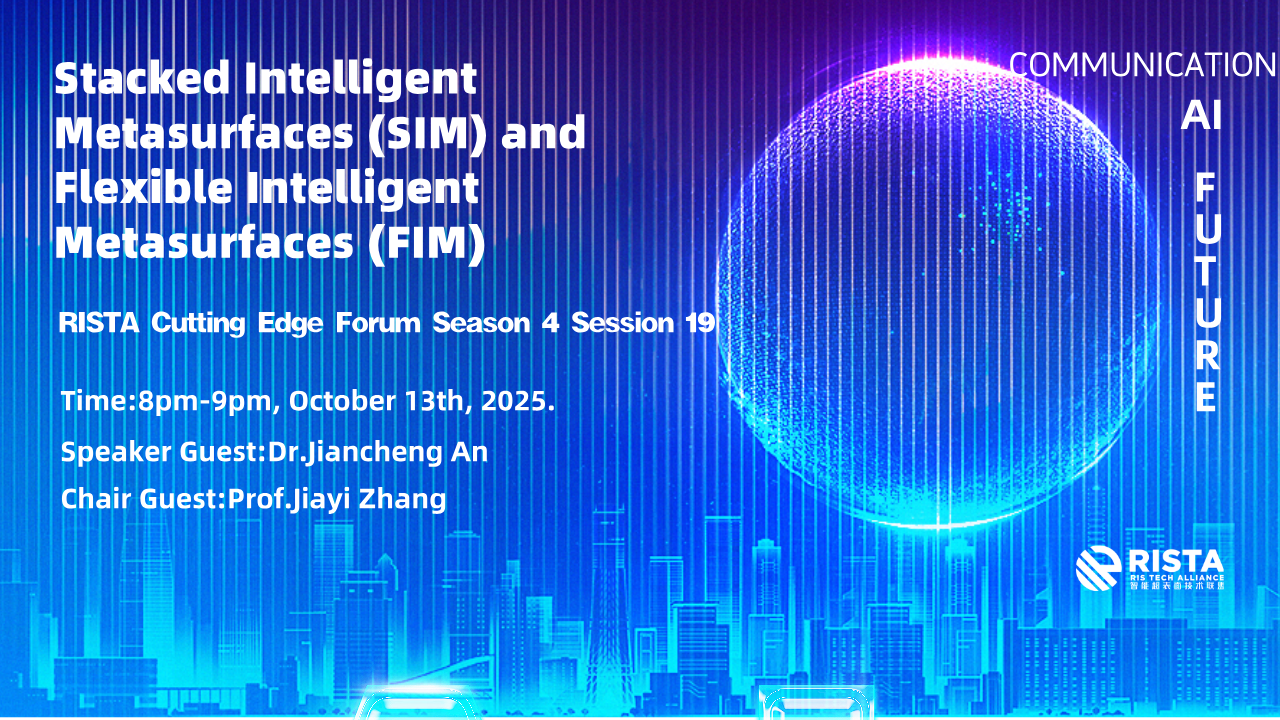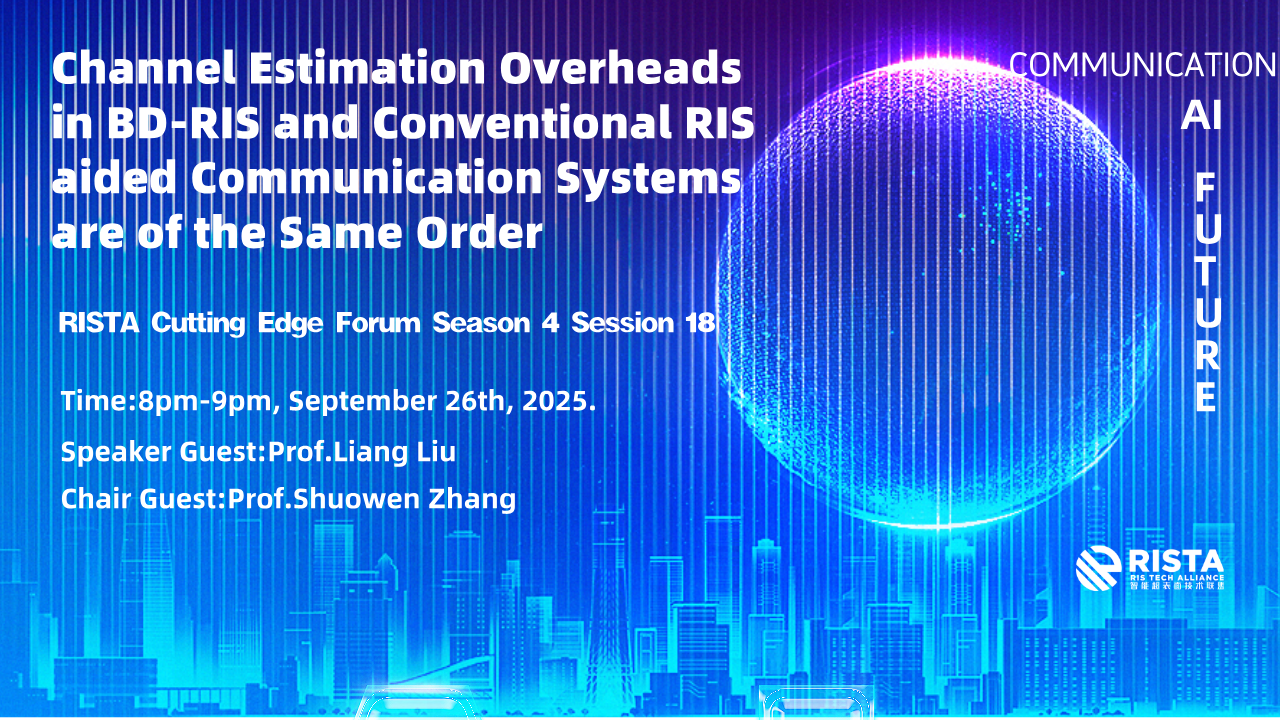
RIS CUTTING EDGE FOURM
AI-powered RIS Channel Acquisition and Wireless Resource Optimization
AI赋能的RIS信道获取与无线资源优化

AI-powered RIS Channel Acquisition and Wireless Resource Optimization
- RISTA CUTTING EDGE FORUM Season 4 Session 11
- Time:9:00-10:00,August 16th,2025.
- Speaker guest:Prof.Jun Li
- Chair guest:Prof.Zhen Gao

Li Jun, Professor and Doctoral Supervisor at Southeast University, IEEE Fellow. His research focuses on the architecture design and optimization of ubiquitous intelligence in resource-constrained environments for next-generation mobile communication systems (6G), as well as its innovative applications in industrial internet. Over the past five years, he has published more than 140 SCI-indexed papers in prestigious journals, including IEEE series journals and the Proceedings of the National Academy of Sciences (PNAS), among which 15 are ESI Highly Cited Papers. He led a consortium of 10 institutions in formulating industry standards for federated learning in the industrial sector, which were approved by the Ministry of Industry and Information Technology (MIIT) and officially released. His innovative research achievements have earned him numerous academic awards, including the 2023 Natural Science First Prize from the Chinese Institute of Electronics, the 2022 IEEE Signal Processing Society Best Paper Award, and the 2024 Best Paper Award at the China Conference on Communications (ICCC). He serves as an Associate Editor for the IEEE Transactions on Wireless Communications, a Guest Editor for the IEEE Journal of Selected Topics in Signal Processing, and an Associate Editor for the IEEE Communications Letters. Additionally, he is an expert member of the IEEE Standards Committee/Technical Advisory Committee on Intelligent Manufacturing, a committee member of the MIIT Industrial Internet Identification Strategy Promotion Expert Committee, and an expert in the 5G Application Industry Alliance under the China Academy of Information and Communications Technology (CAICT). He has also served on the Technical Program Committees of multiple international conferences and as the Technical Program Committee Chair for the IEEE ICIAfS2021 and IEEE GlobeCom2020 Workshop.





